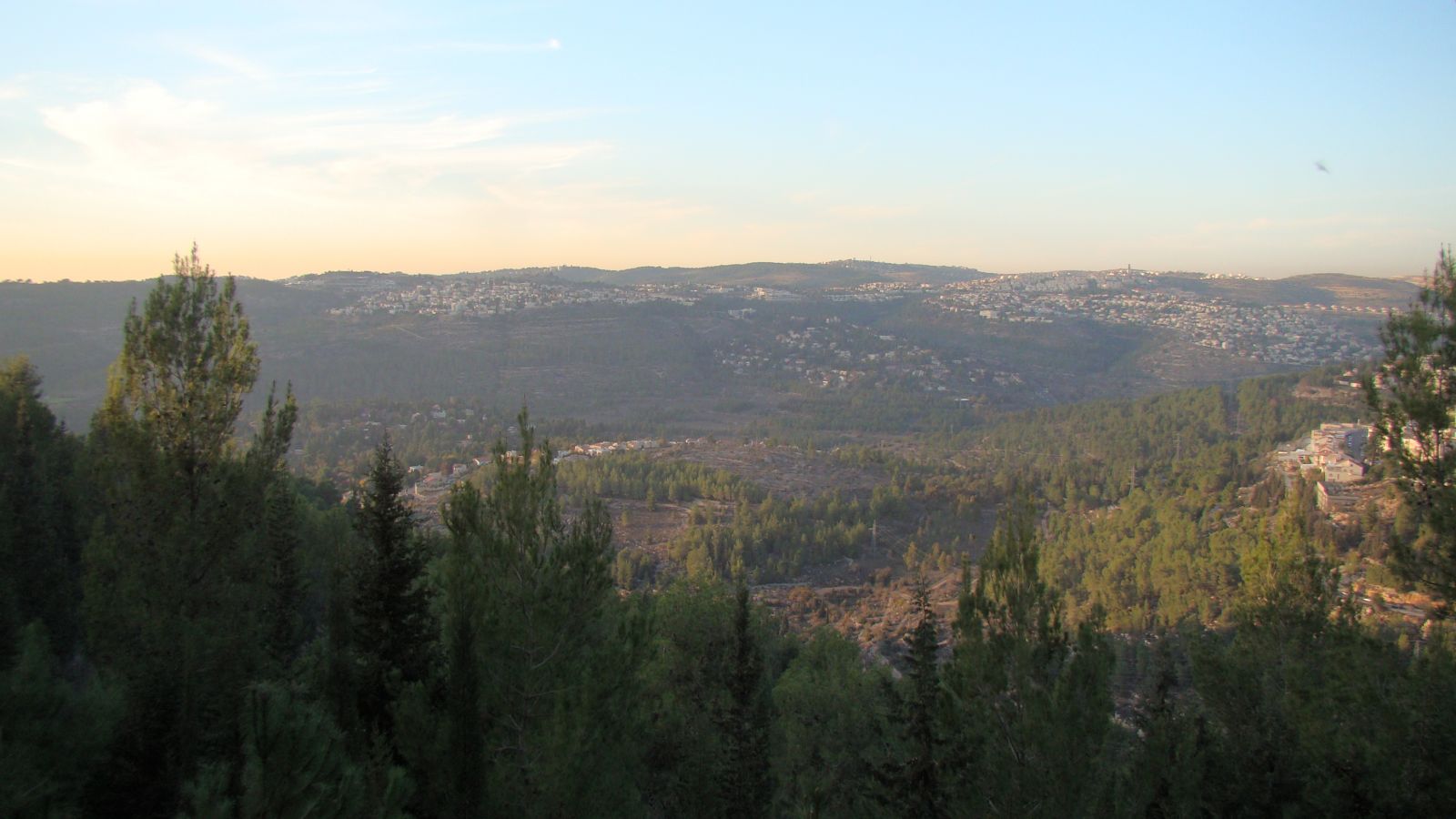Christmas Blessings 2011
“Behold, I bring you good tidings of great joy which will be to all people.
For there is born to you this day in the city of David a Savior,
Who is Christ the Lord.” Luke 2:10-11

It has been some time since our newsletter following our return from Africa. There is still much to report from that journey, as well as a series of Bible conferences throughout the fall season. First on our list, however, is to send out to each of you our desire and prayer for your spiritual blessing at this time. Some may ask—amidst all the economic, social, national, and international problems—how can we know fullness of joy, have that inner peace, and experience a sense of blessedness? It is good for us to be reminded that God’s mightiest works are always brought about as a "surprise" in dark and evil times. Consider the context of Luke chapter two:
1. The Tyranny of Rome
The first two verses (Luk 2:1–2) tell of a universal registration of all people in the Roman Empire. This was "all the (civilized) world," as far as Rome was concerned. This was ordered by Caesar Augustus (Octavian, who reigned from 27 B.C. to 14 A.D.) and confirmed by the Roman Senate. Although connected to the purpose of taxation, the registry of all people, in connection to the place of their birth, included the concept of population control—something Rome would use later in the destruction of Jerusalem in 70 A.D. Joseph and Mary lived in a time when past freedoms and privileges in Israel were only a memory.
2. Promise, Providence, and Problems
In Luk 2:3–7, we have an amazing collage of seemingly conflicting bits of information. Joseph and Mary are living in Nazareth, to which they will return after their sojourn in Eqypt (see Luk 2:39–40, with Mat 2:13–23). This is significant in light of the prophecies (plural) mentioned in Mat 2:23 saying, "He shall be called a Nazarene." We search in vain for such a prophecy in the Old Testament, much less several of them, until we discover that "Nazareth" comes from the Hebrew netzer, the word translatet "branch" in Isa 11:1 (see also Jer 23:5, Jer 33:15, Zec 2:8, and Zec 6:12, where the word tsemakh is related to a verb meaning "to sprout up unexpectedly and bear fruit"). In addition, while Judeans despised Galileans, even Galileans despised people from Nazareth (cf. Joh 1:46). Jesus would be "despised and rejected by men," just as Isaiah prophesied (Isa 53:3).
Also, the mention of "the city of David, which is called Bethlehem," not only sets the stage for the birth of the Messiah, but also confirms that both Joseph and Mary are of the lineage of David, which fulfills the Davidic Covenant (2Sa 7:12–13, with Gal 3:16). So the providence of God is working through the decree of Caesar (God turning evil to good, Gen 50:20 with Rom 8:28), creating conditions of hardship on Joseph and Mary, yet fulfilling His prophetic Word.
However, there is more! The last phrase in Luk 2:7 says, "because there was no room for them in the inn," and they are forced—after a long and arduous journey—to seek shelter in the sheep-folds outside Bethlehem. Thus God fulfilled His obscure prophecy of Mic 4:8, "And you, O tower of the flock, the stronghold of the daughter of Zion, to you shall it come, even the former dominion shall come, the Kingdom of the daughter of Jerusalem." The "tower of the flock" (Eder) is mentioned in Gen 35:21, where Jacob pitched his tent after the death of Rachel. Scholars place this in the "shepherds’ fields" outside Bethlehem, thus both Mic 4:8 and Mic 5:2 are fulfilled, once again by conditions of hardship and difficulty for Joseph and Mary. Do you think either of them might have asked, "Is this the best God could do for the birth of His Son?" To which—viewed in light of prophecy—the answer could only be "Absolutely!" Isn’t it possible that God might work in the same wondrous way through all our difficulties and trials?
3. Angels, Shepherds, and Sheep
From Luk 2:8–20, we have the angelic announcement to the shepherds, and their visit to the manger scene. That these shepherds were "living out in the fields" suggests that the time is early spring (March/April) when the ewes were lambing. Thus, at the time when lambs were born, the "Lamb of God" (Joh 1:29) is born. Not in the palace, nor in the temple, was the great announcement made, but "out in the fields" to poor, common peasant shepherds. Immediately, at His birth, His merciful, redemptive work begins. "’In that day,’ says the Lord, ‘I will assemble the lame, I will gather the outcast, and those I have afflicted; I will make the lame a remnant and the outcase a strong nation; so the Lord will reign over them in mount Zion from now on, even forever’" (Mic 4:6–7). Truly, God seeks the "week, foolish, base, despised" (1Co 1:26–30), but above all, "those who worship in spirit and truth" (Joh 4:24).
Note that the angel (Luk 2:9–12) gives a four-fold identification of this Child that has been born. Coming at that time—the time of the universal registration—to "the city of David," means He is of David’s lineage. Further, He is called "Savior," indicating that He is the "seed of the woman," (Gen 3:25) who would redeem mankind from sin. Then, He is called "Christ" (Messiah), which shows Him to be the Holy One of Israel, on Whom all prophesies converge. Finally, He is called "the Lord." This is a declaration of His deity and is a fulfillment of the first prophecy of Micah, "For behold, the Lord is coming out of His place; He will come down and tread on the high places of the earth" (Mic 1:3).
Not only does He come as "the Lamb of God," but also as "the Shepherd of Israel" (Psa 80:1; Eze 34:23), so it is fitting that He be born in the sheep-fold, viewed and worshipped by these poor shepherds. Thus, the angelic multitude sing the benediction:
"Glory to God in the highest,
and on earth peace among people
with whom He is well pleased."
Note the change from "goodwill toward men." While it is evident that in the birth of Christ God is sending a Redeemer who will die for all mankind (1Ti 2:5–6 with 1Jo 2:2), the key thought here is that the "peace" which God offers is obtained only by those who receive His Son (Joh 1:12–13; Rom 5:1). Only the Lord of Peace can give you peace (2Th 3:16). This is why the Gospel message is called "the Gospel of peace" (Rom 10:15). There is nothing we can do to please God that compares with trusting in His Son. God is glorified by men and women who believe in Jesus Christ, and with such people God is well-pleased.
After the angels departed, the shepherds went to Bethlehem, saw the Christ-child, and "made widely known the saying which was told them concerning this Child" (Luk 2:15–17), and returned to their flocks, "glorifying and praising God for all the things that they had heard and seen, as it was told them" (Luk 2:20). This—combined with Luk 1:65, "and all these sayings were discussed throughout all the hill country of Judea"—indicates just how widespread the message was that the Messiah had been born. There was absolutely no excuse for Israel to not know that the time of His arrival had come. This is why Jesus rebuked them, because they "did not know the time of your visitation" (Luk 19:44). So great was the spread of this "good news," including the later crucifixion and resurrection, that Paul was able to say—with some sarcasm—to King Agrippa, "For the King, before whom I also speak freely, knows these things; for I am convinced that none of these things escapes his attention, since this thing was not done in a corner" (Act 26:26). As it was in the beginning, so it is today. The truth about Jesus Christ is widely known, yet men continue to "suppress the truth in unrighteousness" (Rom 1:18) concerning our Lord Jesus Christ. Though He is to the world "the stone which the builders rejected," yet to us He remains the "chief cornerstone, elect, precious, and he who believes on Him will by no means be put to shame" (1Pe 2:6–7).
May this time of remembrance and celebration of Christmas 2011 be for you and your loved ones, a blessed and joyful season. Though you may, at this time, be undergoing various trials (1Pe 1:6–8), yet I urge you to reflect on the story of Joseph and Mary, and apply the truths shown in their lives to your own, thus "counting it all joy when you fall into various trials" (Jam 1:2), knowing that we serve a God who brings light out of darkness, who brings life out of death, and who works to transform all evils into blessing—for those who trust in Him. "Though He slay me, yet will I trust in Him" (Job 13:15). Such a faith will sustain us through the difficult days ahead, and bring us into glory, approved in His sight.
Missions and Conferences
 I mentioned Pastor Ken Mawire in my last report. We also worked with Pastor Happyson Mwashamputa in Zambia. Both these men oversee many, many churches across Zimbabwe, Zambia, Mozambique, Tanzania, and other places. Both have amazing stories of trials, faith, and victories over many years.
I mentioned Pastor Ken Mawire in my last report. We also worked with Pastor Happyson Mwashamputa in Zambia. Both these men oversee many, many churches across Zimbabwe, Zambia, Mozambique, Tanzania, and other places. Both have amazing stories of trials, faith, and victories over many years.We were so encouraged by Happyson’s thankful and hungry heart. When we arrived in Zambia, he said, "we do not need buildings, we need teaching—please come more often and teach us." Toward the end of our time of ministry with him, he spoke with such gratitude and said, "I don’t know what to say, but you have helped us a lot, I mean a lot! You have really helped us a lot!" His English was limited so he could not find other words to express the deep gratitude of his heart. Thank you for sending us and for praying for us, that through God’s grace we were privileged to be a channel of blessing Happyson and his people with God’s precious Word.
We will be returning to these places in April for a pastors’ conference. Nan will be teaching a women’s conference, and we will have other teaching opportunities. We ask that you be in prayer for the work in the new year. We leave January 6 for ministry in Asia, India, and Australia. We hope to have our second Bible conference in Canberra, Australia the first of February.
Following our return from Africa, we attended a Bible conference in Pennsylvania, two in Texas, and one in Iowa where my brother Lynn is pastoring the Prairieview Community Church. We had a wonderful time in every place, teaching the Word of God and enjoying fellowship with His saints, "the chief ones of the earth" (Psa 16:3).
At the end of the year, we find ourselves weary and the time of rest short, yet we rejoice to be entrusted with His service and look forward with anticipation to all that He has for us in the next year. Perhaps before leaving I can give some more details on some of these things. Until then, may you continue to walk in the light of His grace, and grow in the strength of His trust in order to become more conformed to His likeness—looking forward eagerly to that blessed hope of His soon coming (Tit 2:13)!
Celebrating His grace,
Gene and Nan

